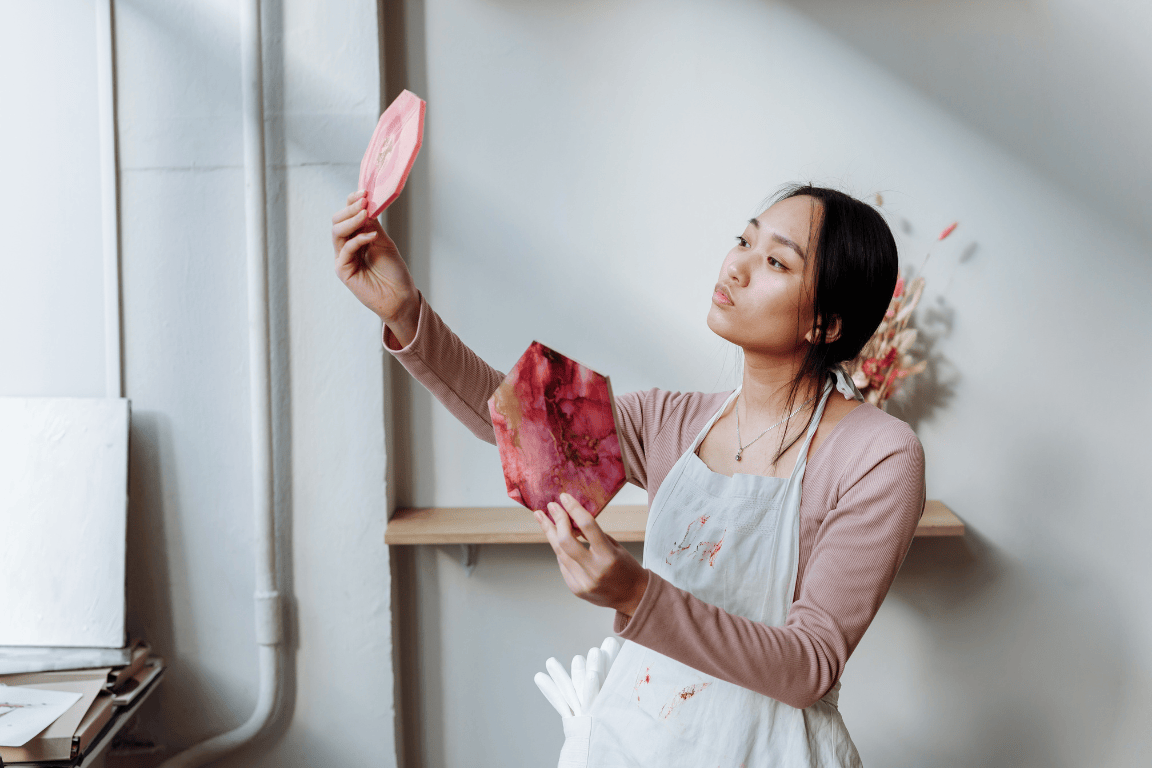
Anxiety disorders are the most common mental illnesses in the US. According to the Anxiety and Depression Association of America, over 40 million adults are affected annually.
Anxiety disorders are characterized by feelings of nervousness, high stress, paranoia, or a sense of impending doom. But it can also be a condition experienced uniquely by each person. One thing we know for sure is that anxiety can affect everyday life and the relationships within it. Maintaining a romantic relationship with a partner can be difficult when anxiety is a part of the picture, causing people to feel disproportionately insecure, co-dependent, or suspicious.
But living with anxiety and being in a healthy relationship is still possible with the right approach. It just requires the right coping strategies.
9 Tips to Cope With Relationship Anxiety
If anxiety is plaguing your relationship, these tips can help.
1. Know what triggers you – and communicate it to your partner
Being open and vulnerable about what triggers your anxiety to flare up might be scary, but it’s important if you want your partner to understand more about you. If you don’t communicate your situation to your partner, they may unintentionally make things worse – and they won’t know what to do to avoid it.
Developing a strong understanding of your anxiety disorder and what exacerbates it is not only healthy for your sake as an individual, but also for equipping your partner to support you long-term.
2. Remember: analysis can lead to paralysis
Yes, knowledge is power, and checking in with yourself about how you feel day-to-day is important. But it’s equally important to recognize when your analysis turns into paranoia or paralysis.
When you fixate on the fears, worries, or frantic thoughts that often come alongside anxiety, it can be easy to get lost in them and allow them to overwhelm you. This only perpetuates the problem.
Learn how to recognize the difference between objective assessment and hyper-analysis so that you can prevent yourself from spiraling into distress.
3. Don’t compare your relationship to others
This is something nearly everyone does at times, but those with anxiety may be more prone to it than most. When you look at other couples, it might feel like they don’t have any problems or that they are happy all the time.
The best approach is to focus on your relationship, not anyone else’s! The truth is, you don’t know what anyone’s relationship looks like behind closed doors. Don’t assume everyone else has it better than you. They often don’t.
People are imperfect, and consequently, so are their relationships. Direct your energy into working on your relationship challenges rather than fixating on what others might be.
4. Make sure you have access to mental health resources
Anxiety can be a demanding and exhausting disorder. But when you have access to the right tools and resources, you can significantly reduce its impact on your life. Some useful resources include:
- Going to therapy
- Doing activities that support your mental health
- Taking your medication (if prescribed)
- Reading up on anxiety coping methods
- Being open to trying new things/approved treatments
Unfortunately, anxiety is not the kind of thing that goes away on its own. It requires real effort to support and reduce over time. But here’s the good news: with the right tactics and tools, living and thriving with anxiety is absolutely possible.
Get access to mental health resources.
5. Cultivate honesty with your partner
Anxiety can lead to objectively selfish behavior. It often causes people to hyper-fixate on the things that worry or upset them, letting other people’s equally relevant struggles fade into the background.
Naturally, this can make your partner feel reluctant to come to you with their issues for fear of burdening you. But a healthy relationship necessitates both parties feeling comfortable enough to ask for support when needed. Your partner deserves the same.
While still respecting and addressing your personal anxieties, make sure that your partner still feels safe enough with you that they can also be honest when something is stressing them out.
6. Set aside time to laugh, play, and have fun together
Laughter and lightheartedness are both fantastic tools for combating anxiety. And they are important ingredients for healthy, happy relationships too. Be intentional about creating situations where you can just relax, play, and laugh together as a couple.
Playing board games, watching a great comedy, or going for a romp in nature are all effective ways to reintroduce some fun into your relationship that might otherwise struggle to naturally occur.
7. Uncomfortable conversations can bring you closer
Intimacy is important for any relationship to thrive. But sometimes, stress and anxiety can cause impotence or a loss of libido. If you’re uncomfortable talking about this, it can make it worse.
Both parties need to feel as though they are safe to express and share vulnerability in certain moments. But anxiety can make the prospect of vulnerability challenging, which only makes it more important to practice.
Because anxiety can create distance between you, it’s important to be really intentional about pushing through to foster closeness and mutual familiarity. If you can discuss your issues and whether therapy or medication can help, you’ll strengthen your bond and reduce the feelings of anxiety around the topic.
8. Let go of the need for control
Regardless of whether you have minor insecurities, struggle with high-functioning anxiety, or are debilitated by this condition, the fear of the unknown is a major trigger. Having control over every situation and foreseeing exactly how it plays out is crucial to your peace of mind.
9. Stop Anxiety From Taking Over
No relationship is perfect, and neither are you and your partner. But you can still maintain a happy, loving, and supportive relationship despite this. Be kind to yourself, be kind to your partner, and seek help from a professional if you feel like you cannot navigate your anxiety disorder on your own.
Learn how to stop anxiety from taking over.
Summary
Anxiety doesn’t have to rule your life or ruin your relationship. Use these tips to manage and cope with anxiety in your relationships. Reach out to us here at The Baltimore Therapy Center, and we’d be happy to help you with any questions you have in this regard.


